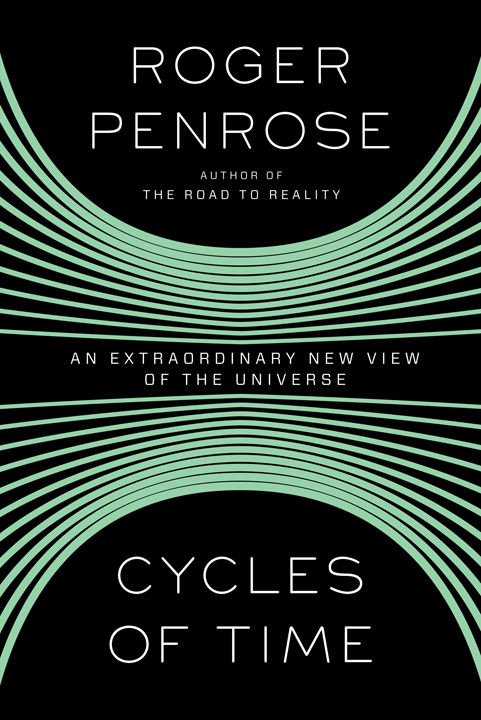
Cycles of Time
An Extraordinary New View of the Universe
- اطلاعات
- نقد و بررسی
- دیدگاه کاربران
نقد و بررسی

March 28, 2011
Where did the universe come from, why is it the way it is, and what is its ultimate fate? Eminent Oxford mathematician Penrose (The Road to Reality) finds "a profound oddness underlying the Second Law of Thermodynamics and the very nature of the Big Bang" theory of the universeâs origins. In response, he proposes tweaking the old theory to answer these questions. Armed with some fairly hairy math (logarithms, tensor calculus), Penrose argues that increasing entropy, a natural consequence of the Big Bang, supports space-time models in which an increasing number of hungry black holes should yield matter-spewing white holes as well. Instead, we have an entirely too uniform universe more suited to a "conformal cyclic cosmology" where black holes grow and eventually "pop," yielding a fresh new Big Bang in an infinite "succession of aeons." Although Penrose makes provocative arguments for his challenging new theory (relegating his denser mathematical explorations to the appendixes), readers will need a solid grounding in college-level math and physics to wade through this intriguing work. B&w illus.

April 1, 2011
Award-winning physicist Penrose (The Road to Reality: A Complete Guide to the Laws of the Universe, 2006, etc.) challenges current theoretical models of the Big Bang.
The author reprises the discovery of the Doppler shift by Edwin Hubble, which established the fact that our universe was expanding at an increasing rate, and he explains how this allowed astronomers to extrapolate backward to a moment approximately 14 billion years ago "when the matter of the universe would have to have been all together at its starting point." In 1964, the observation of the cosmic background radiation allowed scientists to elaborate a detailed model of the evolution of the universe, beginning in the fraction of a second after an explosive Big Bang. Penrose points out that this picture is problematic because it appears to violate the Second Law of Thermodynamics. Except for minor violations, entropy—a measure of disorder—always increases over time. At the instant of the Big Bang, entropy would be extremely high, then energy would be decreased as the universe entered its expansionary phase, elementary particles formed and gravity kicked in. The author suggests that what is called the Big Bang was not an explosion but a transition point from an earlier cycle of the universe. To resolve this theoretical conundrum, he suggests that in the far-distant future, stars and galaxies will be compressed into tremendously massive black holes that will clump together and ultimately disappear leaving only cosmic radiation in their wake, after which a new expansionary cycle will begin.
A controversial but intriguing theory that will challenge readers but is well worth the effort.
(COPYRIGHT (2011) KIRKUS REVIEWS/NIELSEN BUSINESS MEDIA, INC. ALL RIGHTS RESERVED.)

May 1, 2011
Eminent in mathematical physics, Penrose is best known popularly for such works as The Emperors New Mind (1990). His latest addresses a matter dear to the popular-science readership: the possibility of physics before the big bang. Penrose demands an aptitude for logical conceptualization to understand the proposal he makes for the origin of the universe. Penrose quarantines equations of relativity and the like to 30 pages of appendixes, yet plenty of formulas remain, which readers will have to comprehend to make sense of his arguments. One formula is for measuring entropy, the physical concept for disorder. Entropy was apparently tiny at the moment of the big bang and will become so again if the universe expands eternally, which Penrose advises is a cosmological problem and also explains in discussions of entropy, curvatures of space, and black holes. Advancing a theory called conformal cyclic cosmology, Penrose has this universe originating in a previous one. A book for serious science readers.(Reprinted with permission of Booklist, copyright 2011, American Library Association.)




دیدگاه کاربران